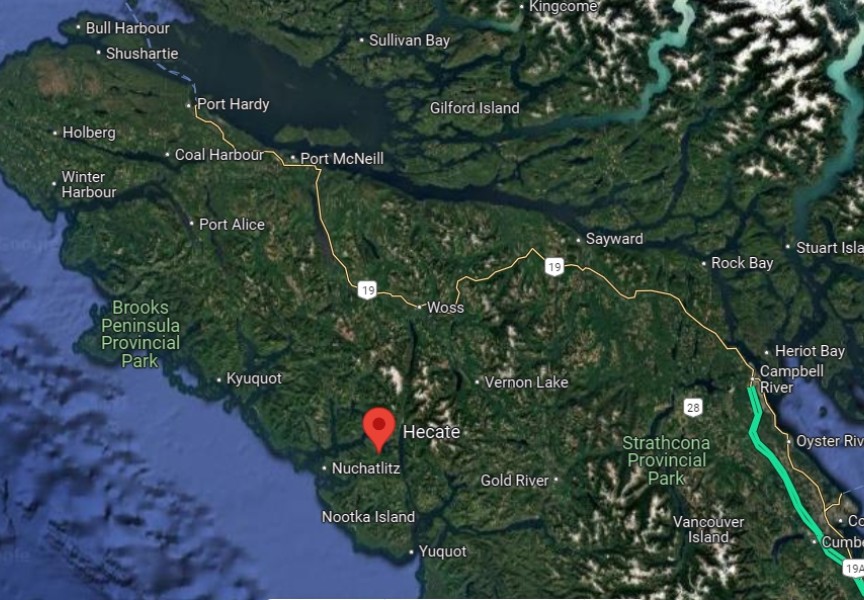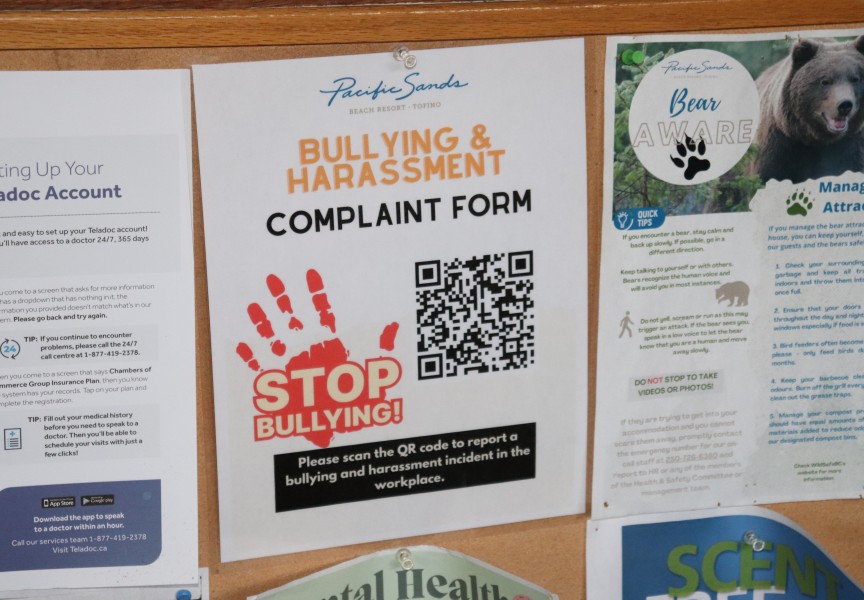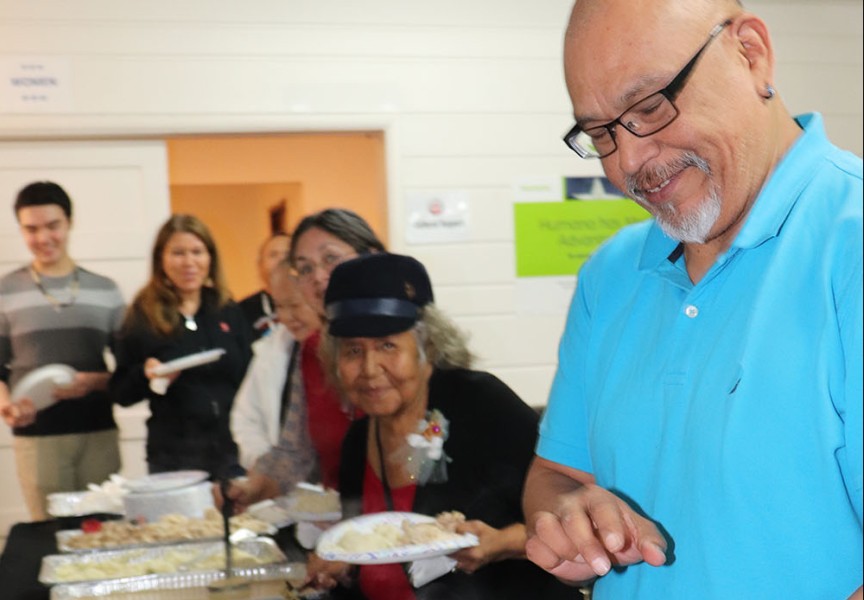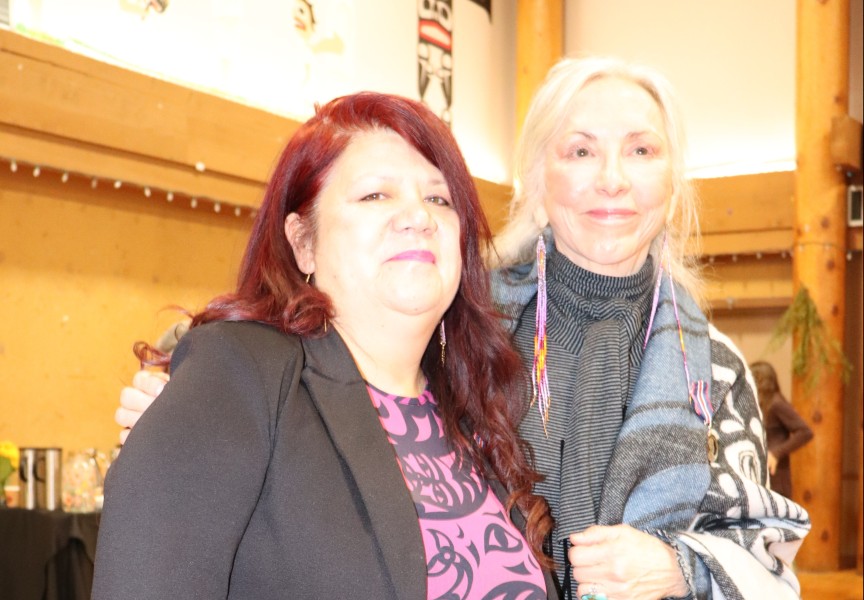After months of trying to contact Dr. Richard Ward, the Oxford professor has finally responded, saying he is willing to do whatever Nuu-chah-nulth want done with their blood.
Question:You’ve seen the story in Ha-Shilth-Sa on the blood samples you took in the 1980’s. What is your response to that story?
Answer:“It’s always been my policy that any individual who participates in a study, who wants to withdraw from the study and have material destroyed, or who wants to have their samples placed in a repository, that those requests are always honoured. That’s actually written in the original consent form.”
Question:But how could people do this when they had no idea where you, or their blood samples were?
Answer:“That’s my fault and I accept the responsibility for that. It was not intended to be a bad thing, but that’s one of the things I want to apologize for. I still accept the responsibility for not letting people know that [other studies] could be happening.”
Question:So what do you see happening now?
Answer:“As I see it we can do one of three things: we can destroy the data so it’s as if they never participated, and if we have any biological material we would destroy those too. If they want biological material to go to some other repository which can look after it in a way that is consistent with health and safety requirements for handling human material, and is consistent with treating human material sensitively, then we would send it off to that repository. And the third alternative is to just hold on to it.”
“We’re required both by law and by common sense to handle this kind of material in a safe way, so we can’t just send a tube of blood off to an individual. We can of course send either individual or collective serum samples to whatever repository they’d like us to send it to.”
Question:So the blood samples are individually identified?
Answer:“They’re not individually identified in terms of having people’s names on them, but they do have laboratory numbers on them, and though it’ll take a bit of work to do this, it is going to be theoretically possible to eventually match a tube with a name, so potentially they are identifiable.”
Question: What do you say to the Nuu-chah-nulth people whose blood you took, and who are now upset at what has happened with their blood?
Answer:“I would like to have some kind of an opportunity to explain better than I obviously have done so far, a little bit about what we did those many years ago, and also to apologize to people for any hurt that I may have caused them. Whatever we did was certainly not done with bad intent, but there clearly were things that we could have done better.”
“Some of the standard practices of 1982 are not so standard now, and I think the kind of code of conduct that we have today, which I think is the right one, means that we should do a few extra things that we maybe didn’t do back then.”
Question:Why did you use the blood for subsequent studies?
Answer:“We thought that once a technique became available, which was not available at that time, to look at mitochondrial DNA that that question [about a possible genetic link between Nuu-chah-nulth people and rheumatic disease] might be answered more definitively.”
Question:But the further tests were in the field of anthropology. What does that have to do with arthritis?
Answer:“It turns out that the Nuu-chah-nulth have a very large amount of genetic diversity, and have certainly not been through a substantial population bottleneck. So it makes it unlikely that the arthritis that the Nuu-chah-nulth have is due to a rare gene that has risen in frequency because of a population bottleneck.”
Question:So how do you explain that in simpler terms?
Answer:“What I would do is to explain the underlying theory so that the logic becomes a little clearer. I think it’s not an easy concept to get at. When I talk about genetic diversity and bottlenecks, I think that needs to be explained to people. It’s difficult, but if I had a chance that’s what I’d try to do.”
Question:Some people have suggested that owe your career to having 883 vials of Nuu-chah-nulth blood. How do you respond?
Answer:“It’s absolutely not true at all that my going from UBC to Utah, or from Utah to Oxford was in any way influenced by the fact that I might or might not have blood samples. That’s just absolutely, categorically not an issue. Nobody offers people a job based on the fact that they might have some interesting samples. The fact that I got the job in Utah is undoubtedly to some extent based on some of the work I had done on arthritis in the Nuu-chah-nulth because that’s part of my scientific record. I’ve been working on things like hypertension and arthritis for a number of years, and have 150 to 200 publications in the area, and collectively, that’s my record. I have quite a small number of publications in total that relate to the Nuu-chah-nulth, but some of them are high profile publications and that’s obviously helped, but it certainly isn’t the only reason. I’d be pretty discouraged if that were to be the truth, but it absolutely isn’t true. The thought that a University would say ‘gosh this guy’s got some samples, let’s hire him’, is just absolutely, flat out, not true, and I don’t think that would happen at any University that I know of.
Question:What do you want to say to the Nuu-chah-nulth people?
Answer:“What I want people to know is that within the constraints of legal requirements and bio-safety requirements, and normal sensitivities about human materials, I will do the best I possibly can to try to do what people want me to do with their samples. So if people feel that they want their samples sent some place, then we’ll do that; no question. If people say they want the stuff destroyed, we’ll do that.”
“The message that I want to give is that I’ll do basically anything that’s feasible to set matters to right, and to let people know that it wasn’t intentional and I do apologize.”
Interview by David Wiwchar
Related: http://www.hashilthsa.com/archive/news/2013-07-22/blood-taken-research-destroyed






